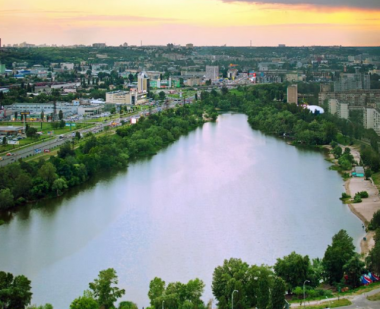
The ecological situation with the water bodies in Kyiv today is so unfortunate that if today we would introduce a complex for their cleaning, the first positive results will be obtained no less than in 5 years.
The ecological situation with the water bodies in Kyiv today is so unfortunate that if today we would introduce a complex for their cleaning, the first positive results will be obtained no less than in 5 years. It is not only about critically overestimated, from the point of view of sanitary norms, indicators of unacceptable chemical elements in water samples but also about geological problems. At the same time, real statistics are hidden from the public, and today the people of Kyiv and guests of the capital continue to rest on the banks of water bodies not imagining what kind of health hazard this relaxation hides.
In particular, if you move away from the polemics and delve into the “bare” facts, it can be found that about 50 lakes within the city can be regarded with full confidence really dirty and absolutely not suitable for swimming in them as well as fishing.
From the perspective of unsuitability for operation, the dirtiest water bodies in Kyiv can be divided into several categories:
violations of sanitary standards have been identified: lakes: Vyrlitsa, Solnechnoye, Ponomarevskie, Zaplavne, a lake in the Partizan Glory park, Bobrovnya, Almazne, Gnilusha (in this case, even the name itself reveals a problem from the perspective of ecology and sanitation), Krugle, Berezka in the territory of the Hydropark, Tsentralne, Vydubitskie, Lybidskie, Kurinevskie, Oaks, Golube, Petrovskie, Camel Bay, ponds on Priluzhna Street, in the town of Kotsyubinskie;
the rainwater run-off into: lakes: Nizhny Telbin, Vera on Zodchikh Street, Siretskie, a system of artificial water bodies Opiechen’; ponds: Sovskyi, Didorovskyi, Holosiivskyi in the Rylsky park, Myshelovskyi, ponds on the territory of the “Teremki-2” housing estate, a group of ponds on the Nyvka river, ponds in the Pronya beam and on the Shevchenko khutor.
Also, of particular interest are the quarry ponds as, in this case, in addition to non-compliance with the required sanitary standards, there are also geological factors such as shifts and landslides on the slopes, unstable soil at the bottom, etc.
As for the Kyiv water bodies located in close proximity to industrial facilities, agricultural lands like farms, poultry houses, in this case, their operation for any purpose is out of the question.
The list of the dirtiest water bodies in Kyiv is replenished every year with new objects, and if the dynamics gathers momentum, our children will not be able to relax on the beach within the city.
Read also
Environmental problems of the Dnieper
Chernobyl - reserve of rare animals









